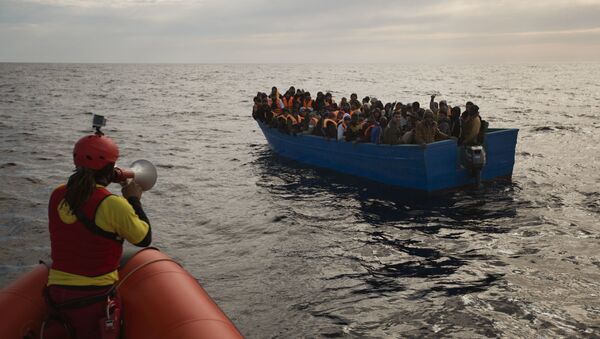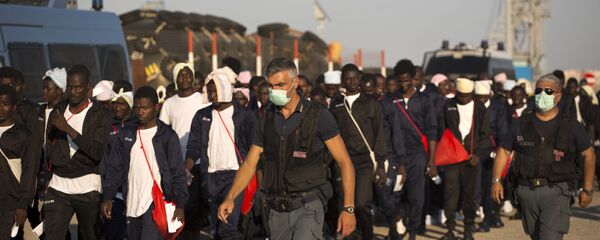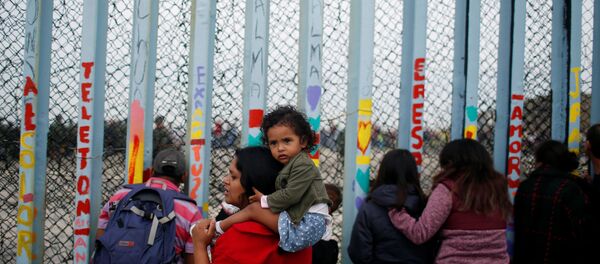Sputnik discussed the issue with Matteo Villa, research fellow at Europe and Global Governance, Business Scenarios, Migration.
Sputnik: Will this initiative settle the issue of migrants with criminal records in Denmark?
Matteo Villa: Denmark’s approved plan of 'contain and forget' is unlikely to bring as many benefits as proponents expect. Just look at Australia: since 2012, the country has gone back to the so-called 'Pacific solution,' a policy of detaining any migrants intercepted at sea, confining them offshore on Nauru or Manus.
While the Australian policy contributed to bring down irregular sea arrivals to the country to almost zero over the past years, it has had huge adverse effects on the health of detained migrants, with very high levels of self-harm.
As to Denmark, confining less than 150 rejected asylum seekers on an uninhabited island in harsh conditions is highly unlikely to have a deterrent effect on prospective newcomers. For one, migrants arrive to Denmark on foot, not by boat, so they are harder to locate and are usually not detained at the border.
And if migrants continue to arrive, but are made less likely to apply for asylum for fear of being detained and confined once their application is rejected, there is the possibility that they might choose to remain in the country irregularly.
This would simply contribute to widen the ranks of irregulars in Denmark, who may be prey to criminal groups and will be forced to enter the informal labor market.
Sputnik: Is there no other way to combat migrant inflows?
The second is the search to find sustainable, long-term solutions for the many that end up remaining irregularly in the country. In many instances, detention is much more costly – psychologically, socially, and economically – than attempts at integrating migrants in the host society.
Integration pays off over the long term, while both detention and returns take a heavy toll on the persons concerned, on the one hand, and on the other bring to a loss of human capital, driving down potential economic growth.
Sputnik: The island is said to be home to a facility researching infectious animal diseases and many politicians have called this ‘inhuman politics.’ What is your stance?
Matteo Villa: I think they are right: EU countries already have quite a substantial amount of tools available if they want to 'punish'irregular migrants in Europe, including detaining them for up to 18 months to facilitate returns.
One should never hide from the fact that irregular migration brings many challenges to destination countries, as well as benefits. This is inevitable. But my opinion is that the EU does not lack tools to tackle irregular migration.
And there is also one important solution, that should be taken into consideration more in the current period of very low irregular arrivals to Europe: regularization of those who are already here and who have few to no prospects of being returned to their countries of origin.
Sputnik: With such measures being pushed by European countries and supported by the public, what does this say about Europe’s real attitude toward migrants?
Matteo Villa: It certainly does not bode well. No society has ever been easily able to cope with inflows of people that they perceived as 'different' from them. Despite beliefs by some within the cosmopolitan elites that today’s European could be different, this constant of human nature [fearing those that we perceive as 'others'] is deeply ingrained in ourselves, and it takes time to assuage.
But the choice is for politicians to make: either stoke these fears, or devise policies to respond to them with rationality. This does not imply that a country should be lenient with persons who commit a crime.
On the opposite, everyone should be expected to respect the laws of the state where they reside. But it does mean that attitudes can influence policies and politics, but they can also be influenced by policies and politics.
Currently, Europe sorely lacks 'centrist' politicians who acknowledge the challenges that migration poses, but who also show that the best path to tackle this challenge is to work to maximize benefits, while being always aware of the risks that come attached with any social process.
Views and opinions expressed in this article are those of Matteo Villa and do not necessarily reflect those of Sputnik.





